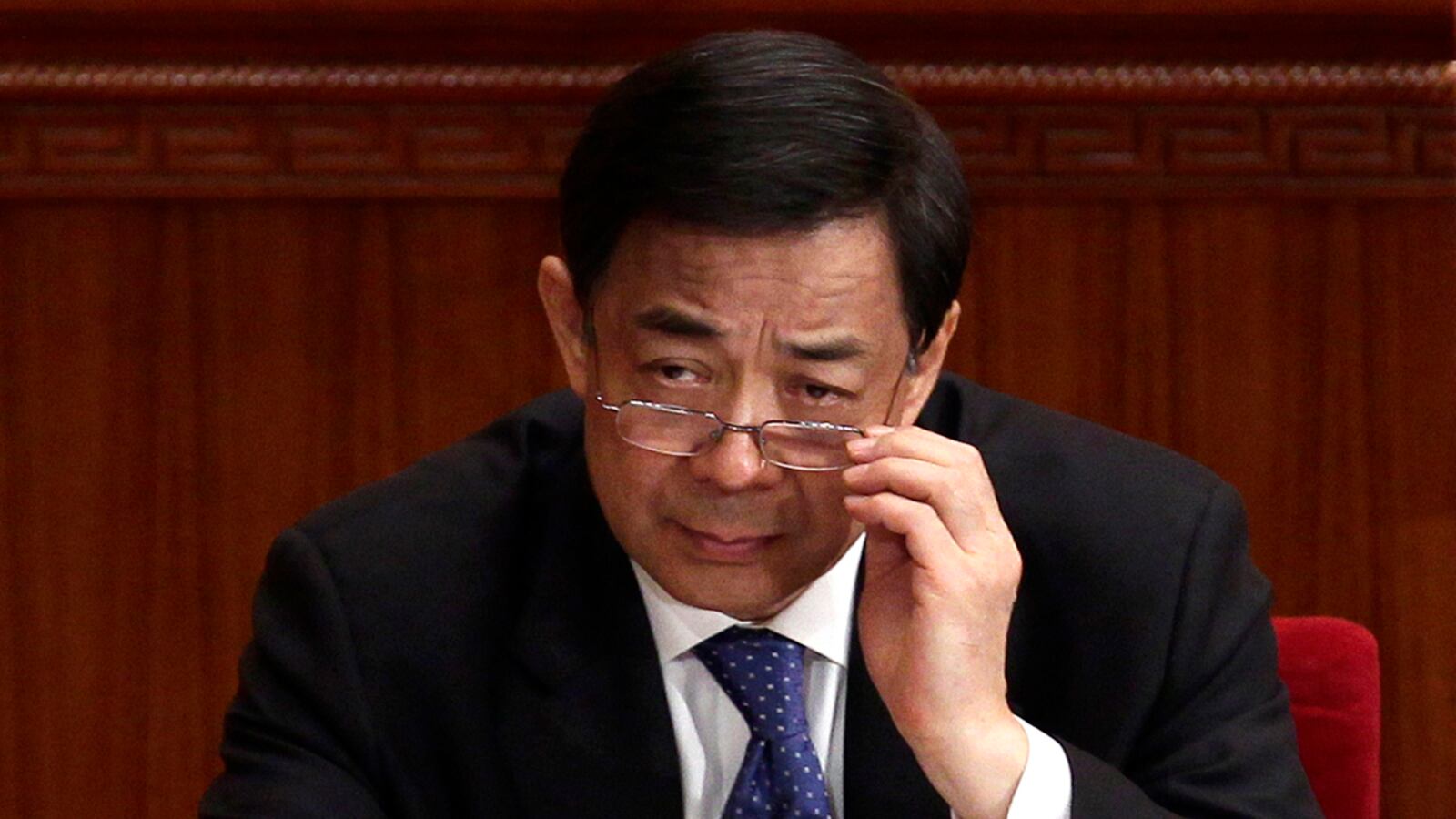Bo Xilai, the disgraced politician whose soaring rise to power collapsed amid an epic scandal of corruption and murder, has been expelled from the Chinese Communist Party and will face criminal prosecution, China’s state media announced Friday.
The expulsion and impending trial of Bo, 63, comes just weeks before the Nov. 8 power transition by the Communist Party.
A former Commerce minister and party chief of the southwestern metropolis of Chongqing, Bo was purged in March and suspended from China’s ruling Politburo a month later after his police chief fled to a U.S. consulate with evidence that Bo’s wife had murdered a British businessman using poison. That defection sparked a massive political crisis the party has desperately wanted to resolve before the leadership transition.
Bo’s wife, Gu Kailai, was found guilty for her role in the killing in August. Earlier this month, the police chief, Wang Lijun, was sentenced to 15 years in prison for his involvement in the murder cover-up and attempting to defect to the U.S.
According the official Xinhua News Agency, the Politburo accused Bo of abusing power, taking bribes, and bearing “a major responsibility” for the scandal, which has upset the party’s secret and well-organized transition plans.
"Bo Xilai's actions created grave repercussions and did massive harm to the reputation of the party and state, producing an extremely malign effect at home and abroad," said the statement.
The fate of the former official, who was once thought to be a candidate for China’s top leadership ranks, has been a major political issue in China. The statement included a range of corruption accusations of “grave violations of party discipline” going back over a decade, including that Bo “had or maintained improper sexual relations with multiple women.”
The scandal surrounding Bo, his family, and his allies pierced the opaque veil of secrecy and power the party uses to shield itself from scrutiny by the public. Never before had such lurid details of corruption been publicized in Beijing, although the government has been careful to script an account that sullied Bo’s reputation and not its own.

Bo has been kept from view since his ouster last spring, and his son Bo Guagua—a recent graduate of Harvard’s Kennedy School of Government who has been accused of being a playboy who once benefitting from his father’s influence—remains in the U.S.
As Chongqing party secretary, Bo earned a notorious reputation for dusting off a revolutionary “red songs” propaganda campaign reminiscent of Chairman Mao’s rule and masterminded a crackdown on so-called organized crime known as “Strike Black.” At the time, Chongqing boosted China’s economic growth rate, and Bo launched a series of initiatives to spur public spending and increase affordable housing.
Bo’s populism may have won over local residents, but those in power were apparently appalled by his actions, which many perceived as an active campaign for a position in the central government’s Politburo Standing Committee, the elite body of leaders who rule China by consensus.
Following his purge in the spring, the party unleashed a massive campaign to erase his legacy, not only in Chongqing but across the country.
His expulsion and impending prosecution mark the end of his political career—if not ultimately his freedom—and allows the government to move forward with closing the door on a scandal that those in power want the public to forget as the new leadership takes over.






